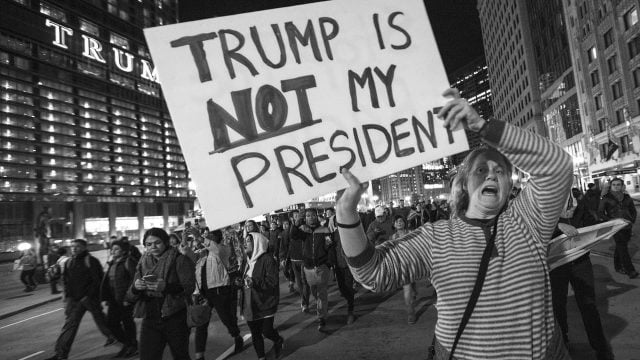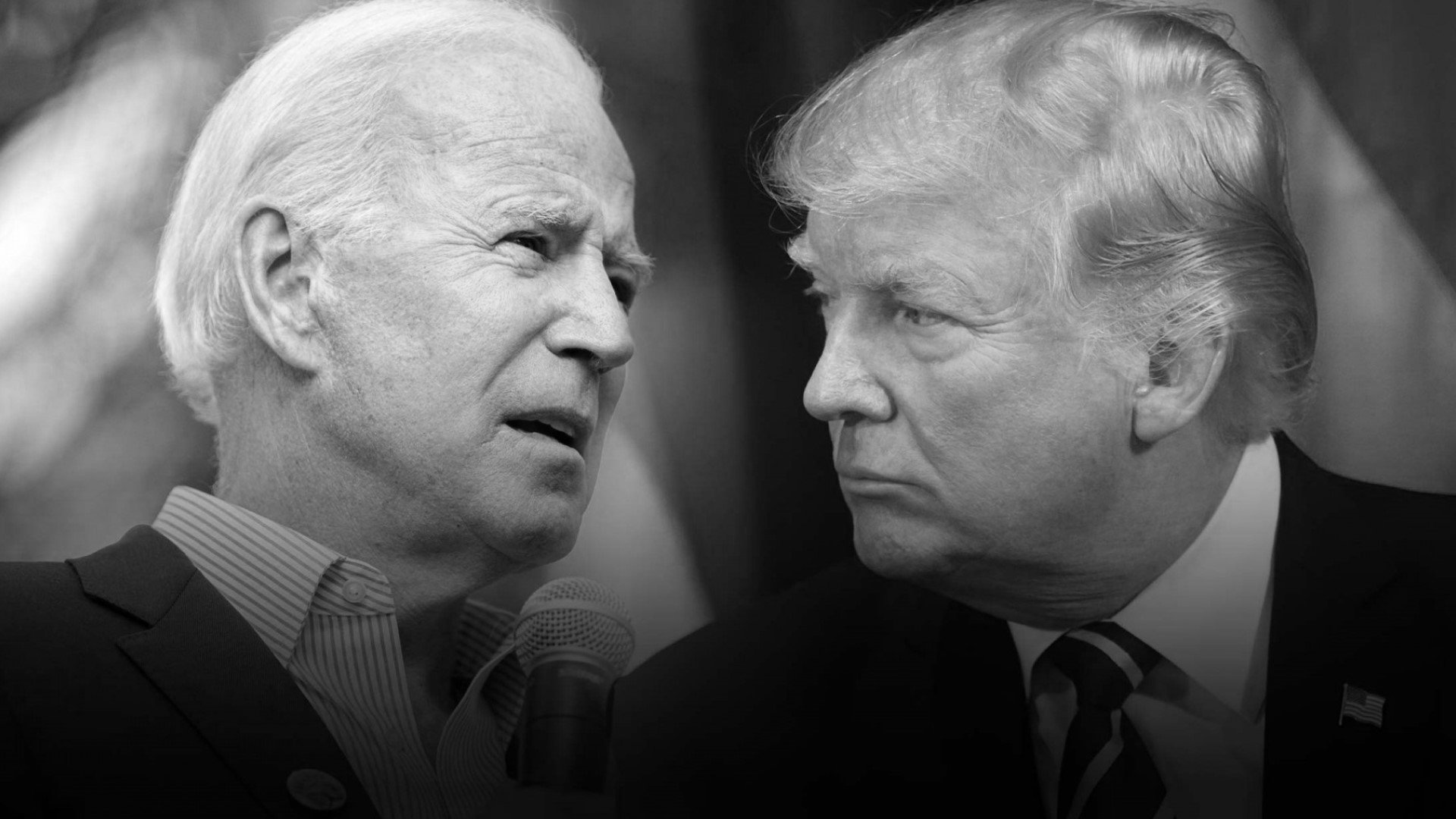The United States is experiencing a political crisis unprecedented in its history. The big media networks took their projections and awarded the victory in the recent presidential elections to Joe Biden. It turns out that this is common, they have done so since the mid-nineteenth century. Losing candidates always step down and accept it, but this year the situation is different with Donald Trump.
The current president, who is seeking re-election, refuses to acknowledge Biden’s victory. He announced that he will take the final decision before the Supreme Court, where his party has control over six of nine justices. Faced with this crisis, the unavoidable question is whether there is a constitutional path to follow in order not to leave the White House.
In that sense, there is concern that the president will do everything possible to stay in power. «There will be a smooth transition … to a second Trump administration», said Secretary of State Mike Pompeo on Tuesday.
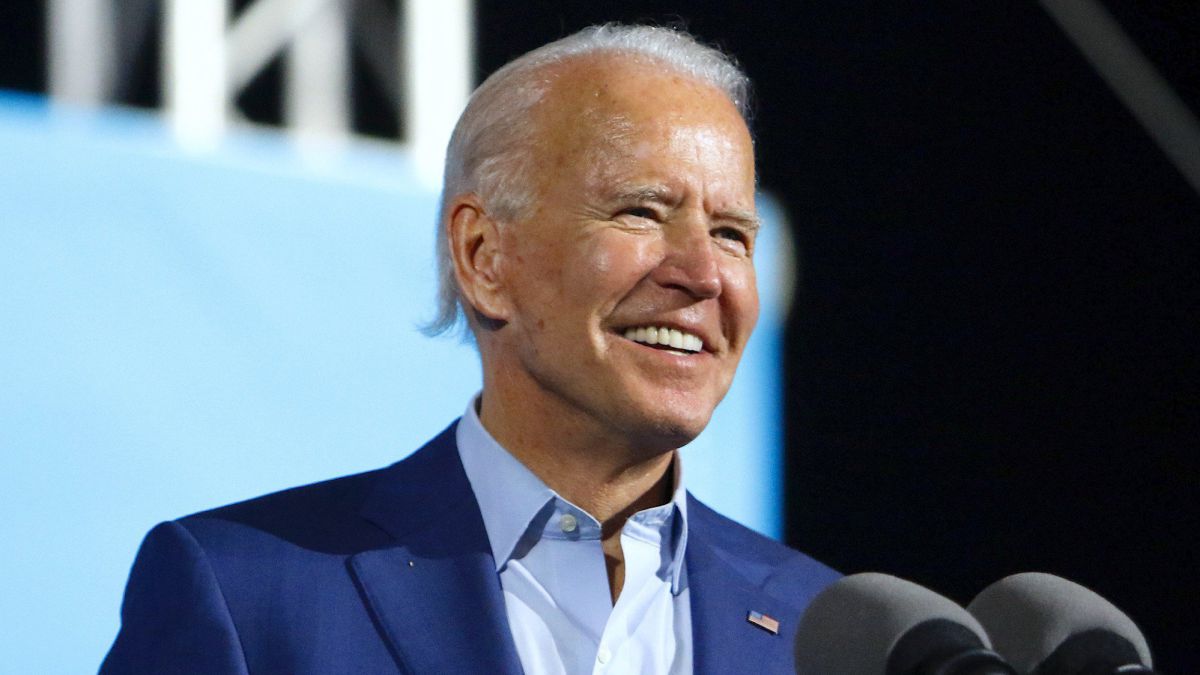
For his part, the attorney general, William Barr, authorized federal prosecutors to investigate the alleged electoral irregularities. He did this, although Trump’s political team has yet to present a single piece of evidence.
Following that, Justice Department Chief Election Crimes Prosecutor Richard Pilger resigned. He denounced that the policy of waiting for the vote counts to be certified before initiating investigations was broken.
But despite all of Trump’s machinations, it is highly unlikely that he will be able to find a way to stay in power. Even more unlikely is that he could carry out a «coup».
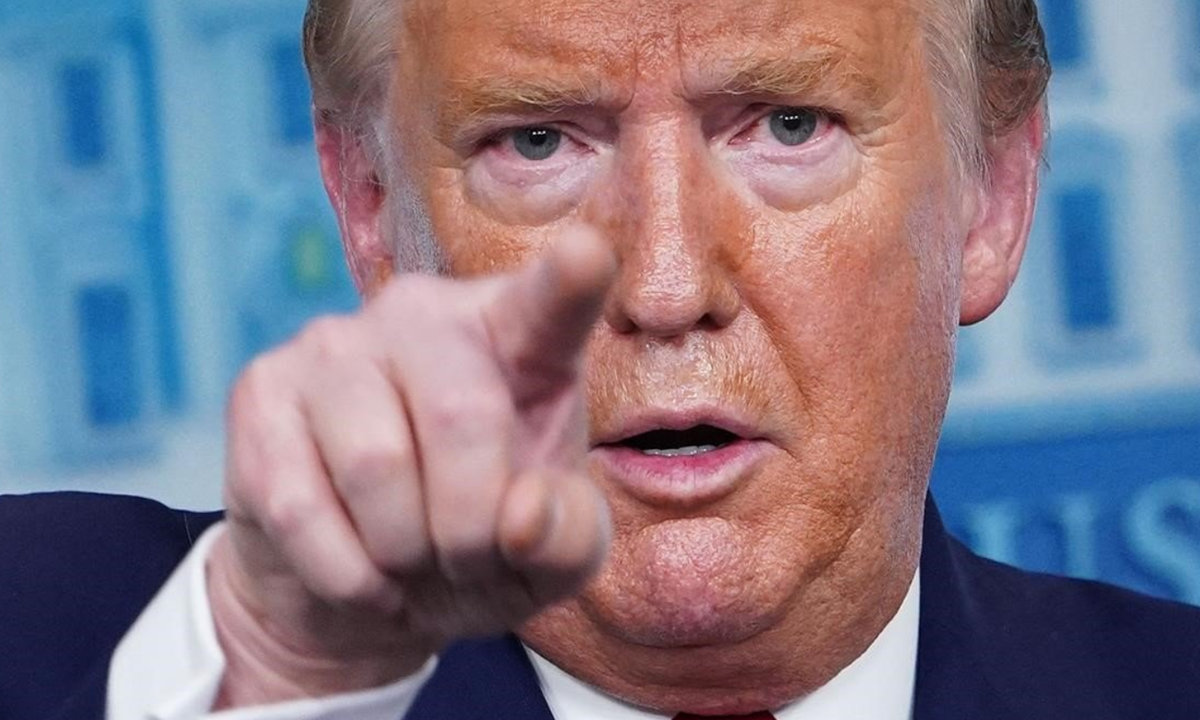
Can Trump launch a constitutional «coup»?
The electoral colleges meet on December 14 to cast their votes. Generally – not to say always – all states use the popular vote of the state to choose their candidate. Currently, Biden is expected to get much more than the 270 electoral votes he needs. Projections indicate that he will gain an insurmountable advantage in Michigan, Nevada, Wisconsin, Pennsylvania and Arizona.
Now, there is a risky legal theory, put forward by the Republicans before the election. It says that Republican-majority legislatures in Michigan, Wisconsin, and Pennsylvania ignore the popular vote and appoint someone of their choice. Federal law allows legislatures to do this, only if states «do not make a decision» by December 14.
The detail is that there is no evidence of systemic fraud or irregularities in any state. Furthermore, Biden’s dominant margins in these places make it clear that the states have, in fact, already made the decision.
“If the country respects the rule of law, I don’t see a plausible constitutional path for Trump to remain president. Sure, unless there is evidence of a massive failure of the electoral system in various states». This was expressed by Richard Hasen, a law professor at the University of California.
Speaking to The Guardian, he emphasized: “It would be a blatant and undemocratic takeover of state legislatures to bypass the voters’ choice. I just don’t expect that to happen».
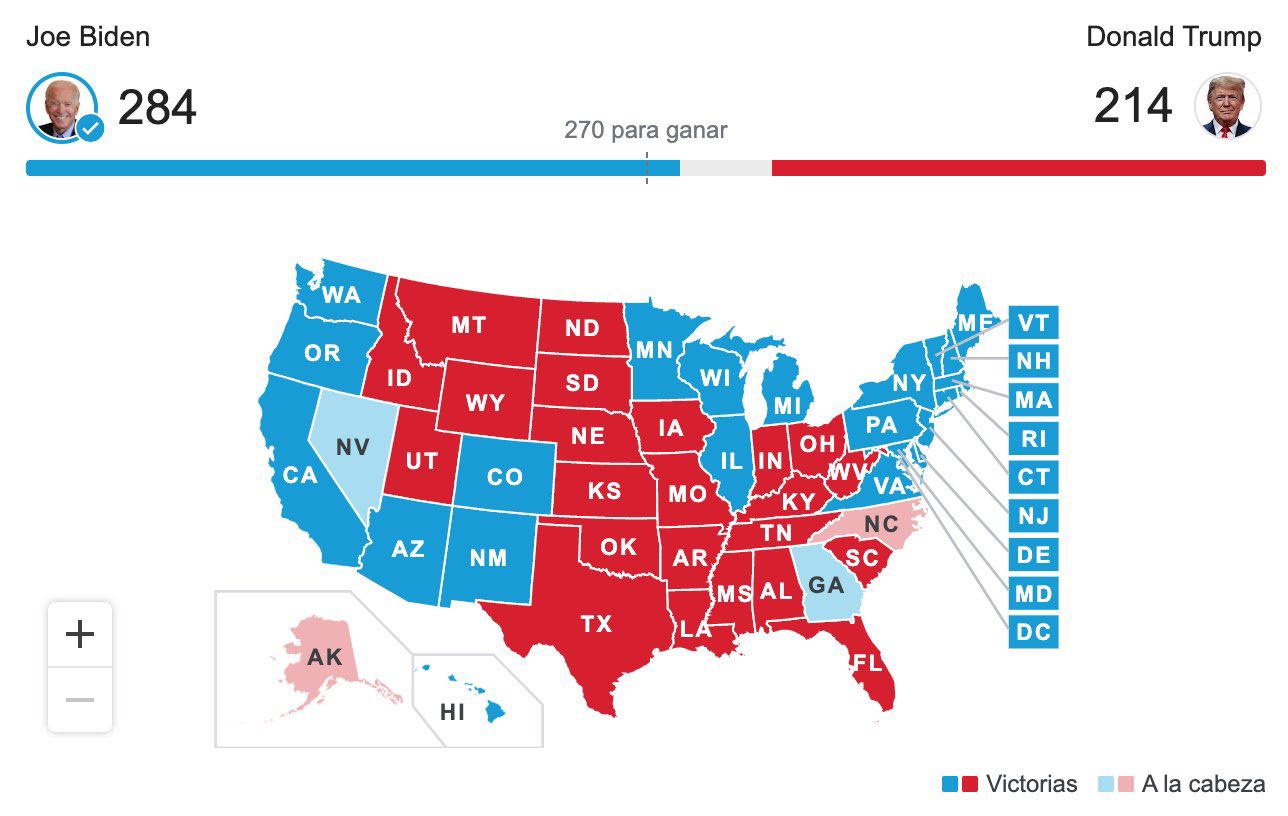
How can Trump win the election
If the legislators of a state choose to override the will of their voters it would likely cause a big outcry. But for Trump to «win» the presidency, not one but several states would have to take that extraordinary step. The problem is that such an event would provoke an inconceivable reaction and a crisis of great proportions in the United States.
“There is a strange fascination with various imagined dark scenarios, perhaps involving rogue state legislatures. But, it’s more of a dystopian fiction than anything else that can happen». This was commented to The Guardian by the law professor at New York University, Richard Pildes.
He then added: “The irony, or the tragedy, is that we achieved an extremely fluid election, with record turnout, in exceptionally difficult circumstances. Unfortunately, a good part of the president’s supporters say they are convinced that the process was flawed». Of course, with no evidence in hand.
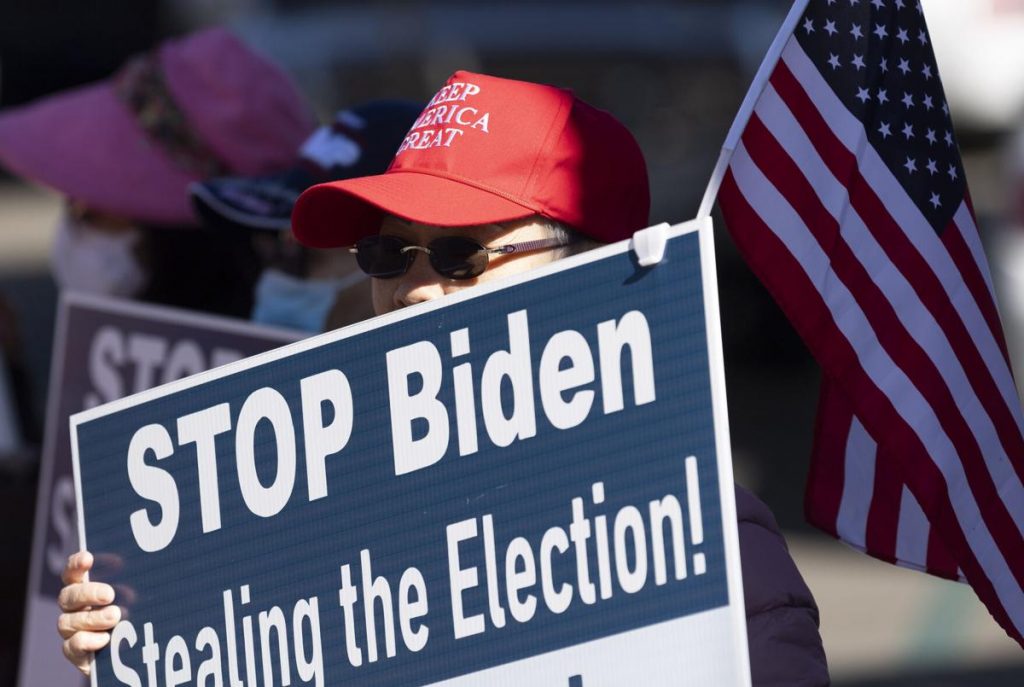
Can Republicans ignore the popular vote?
The Constitution gives state legislatures the authority to appoint the 538 electors of the electoral college, who ultimately elect the president. States have always used the winner of the popular vote to determine who gets the electoral votes in their states.
According to various press reports, some Republicans are considering that possibility. If so, they would ask the state legislatures to ignore the will of the popular vote and appoint voters favorable to the president. To do this, they allege delays in the vote count and alleged and unproven irregularities.
“State legislatures will say, ‘Okay, we’ve been given this constitutional power. We do not believe that our own state’s results are accurate, so here is our list of voters that we believe adequately reflect our state’s results», a supposed legal adviser to the Trump campaign told Atlantic.
Richard Pildes addressed this point as follows: “It is the ultimate nightmare scenario for the country. There is no reason to think that there would be an adequate basis for doing this. It is not entirely clear that the legal power exists to do so”.
«There is a delicate line when speaking and educating people about all kinds of potential scenarios that could arise and create unwarranted anxiety», he added.
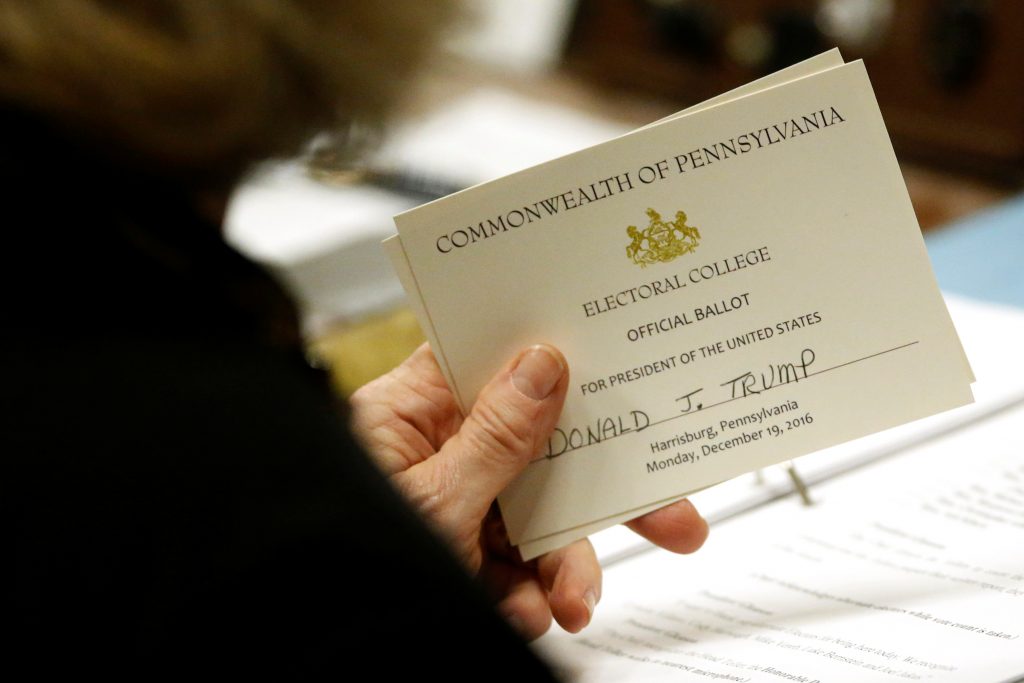
What is the position of the Republicans in those states
Shortly after November 3, Jake Corman, the top Republican in the Pennsylvania Senate, spoke about the issue. He indicated that his party «would follow the law» in Pennsylvania, which requires granting electors to the winner of the popular vote.
In addition, days before, he had already published an opinion article in which he addressed the subject. “The state legislature has, and will not have, anything to do with choosing the state’s presidential electors. Likewise, neither in the decision of the result of the presidential elections”.
However, other Republican lawmakers in Pennsylvania said they wanted to investigate the fraud allegations, although there is no evidence. The decision is alarming, because it could be the beginning of an effort to undermine the results of the popular vote in the state.
Likewise, the Republican-majority legislature in Michigan also decided to investigate the alleged wrongdoing, as in Wisconsin. This is so, although there is no evidence of widespread irregularities in those two states either.
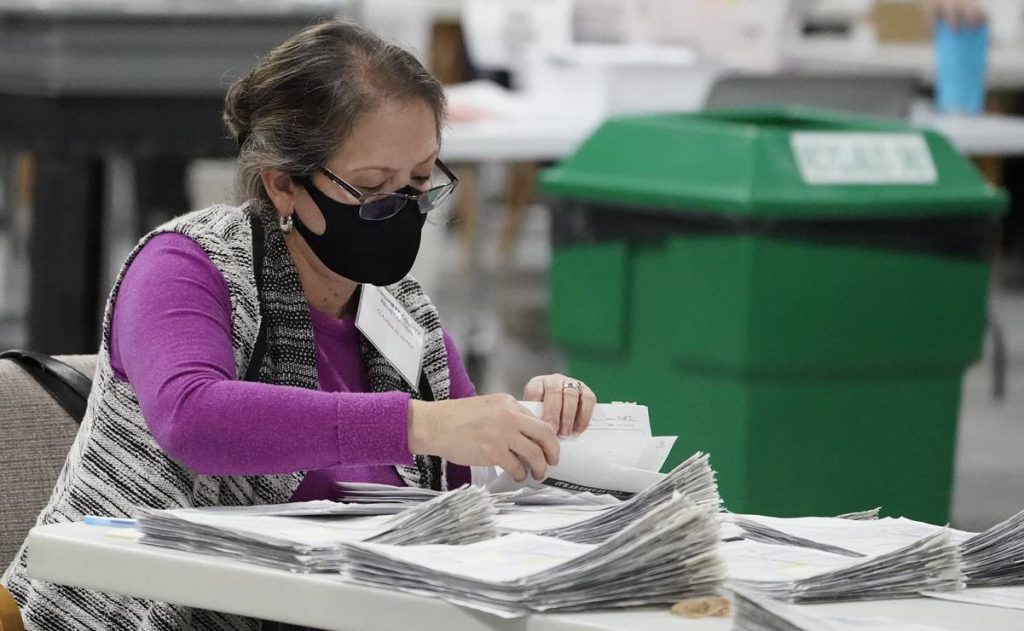
How much influence do Trump’s demands have?
Trump’s team has already filed a considerable amount of legally dubious lawsuits, even before November 3. Now, the purpose of these lawsuits does not appear to be to nullify the results, but to create uncertainty and prolong the counting process.
In the North American nation, each state has its own deadlines to certify the results. But, at least in Pennsylvania and Michigan, Trump’s team is seeking to prevent officials from certifying the results.
This certification schedule is essential for the future of the process. Federal law stipulates that if the results are guaranteed by December 8, they will be «conclusive». So, by lengthening the process, Trump’s intention would appear to be to exceed that deadline and create more room for maneuver to «guess» the results.
But even if that is Trump’s hope, the courts are unlikely to intervene, Pildes said. “The states will begin to certify their vote totals in the coming days. There is simply no basis in the claims and demands for the courts to stop that process».
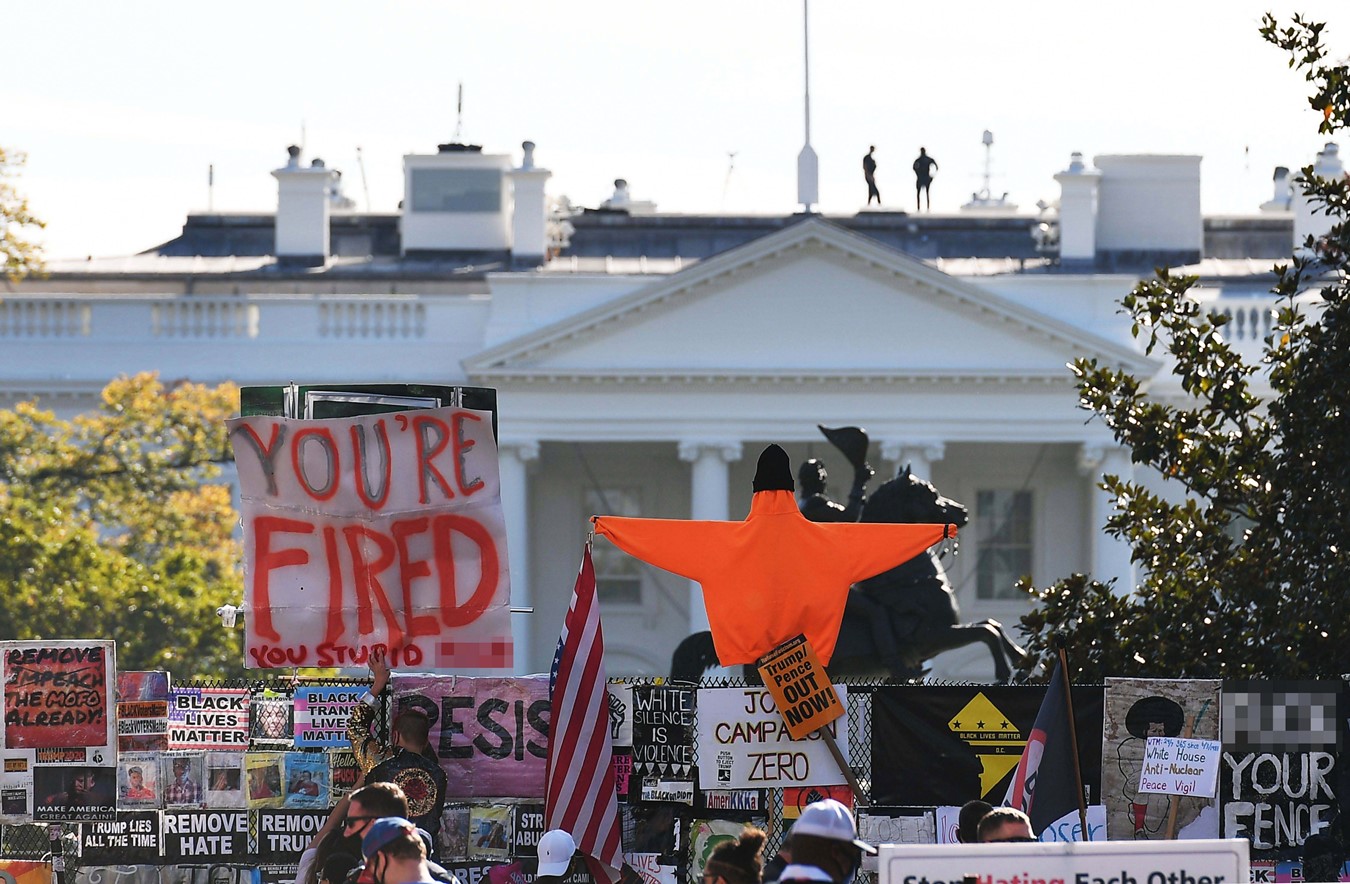
Is there a safeguard to stop Trump?
Pildes exposes the worst case scenario: Republican-majority legislatures override the will of the popular vote. Then, the governors of Michigan, Wisconsin, Pennsylvania and Nevada would come into action: all from the Democratic party.
In that case, governors would refuse to approve the electoral college votes for Trump, arguing that the popular vote went to Biden. Therefore, they would send to Congress those votes that Biden would have, as a right to win, for having had that popular vote.
The next step – then – would correspond to Congress, which is in charge of counting the electoral college votes. The Guardian explains that the law that defines how Congress must handle such disputes is extremely confusing. However, the experts consulted affirmed that the list endorsed by the governor is legally more robust.
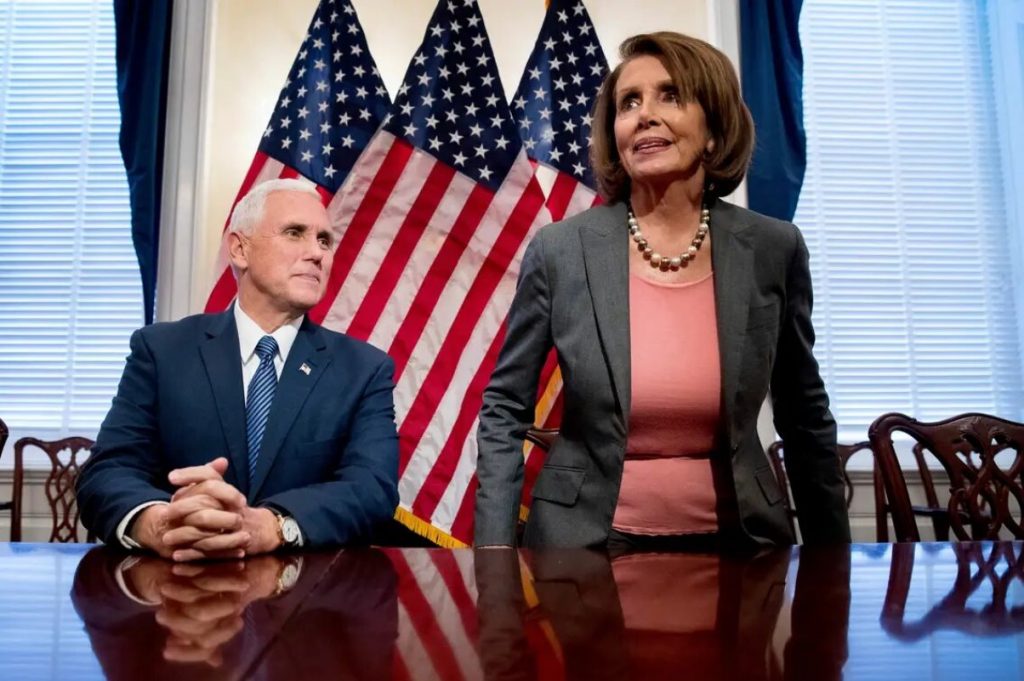
But, a contrary theory ensures that the incumbent Senate, Vice President Mike Pence, could have control over the process. This would cause another dispute, now, between the House of Representatives and the Senate. At that moment, there would be “the worst case scenario”: the Supreme Court would intervene, where – as we have already stated – Trump has a majority.
Regardless of how long that dispute lasts, the Constitution establishes a deadline: the terms of the president and vice president end at noon on January 20. At that point, if there is no end result in the race, the incumbent House of Representatives, Democrat Nancy Pelosi, would become interim president.
